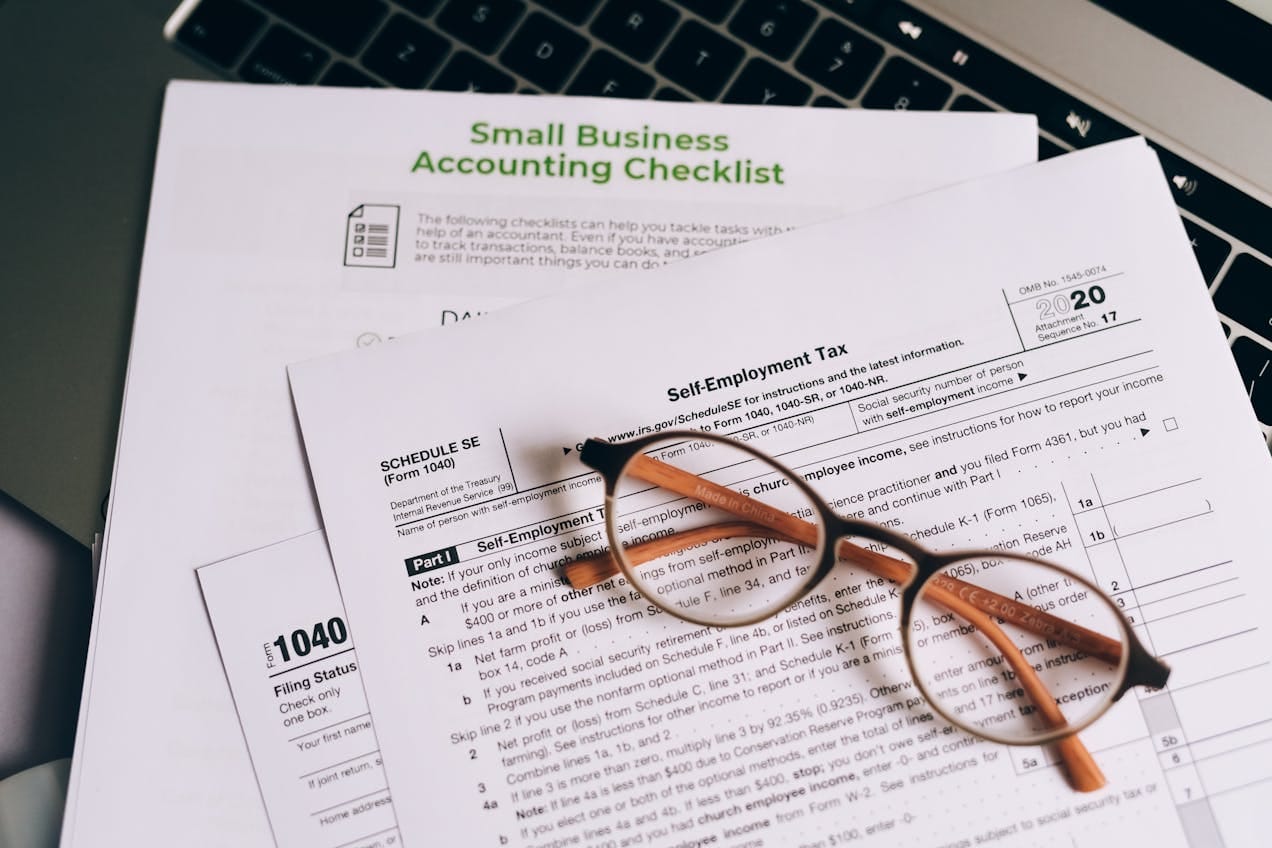
Introduction
As a self-employed taxpayer, you are responsible for paying self-employment tax and reporting all business income. However, the IRS allows business deductions to help reduce Adjusted Gross Income (AGI) and lower your tax bill.
According to IRC § 162, self-employed individuals can deduct ordinary and necessary business expenses related to their trade or profession. Taking advantage of these deductions can result in significant tax savings.
This guide explains what self-employment expenses are deductible, how to claim them, and key IRS rules to follow in 2025.
Who Qualifies for Self-Employment Deductions?
You qualify if you operate as a:
- Sole proprietor (Schedule C filer)
- Independent contractor (receive 1099-NEC or 1099-K)
- Freelancer or gig worker
- Single-member LLC (disregarded entity)
If you own a business or perform work without receiving a W-2, you likely qualify for these deductions.
Top Self-Employment Expenses You Can Deduct
1. Home Office Deduction (IRC § 280A)
If you use part of your home exclusively for business, you can claim the home office tax deduction.
- Simplified Method: $5 per sq. ft., up to 300 sq. ft. ($1,500 max)
- Actual Expense Method: Deduct a percentage of rent, mortgage, utilities, and insurance
Tax Form: Form 8829, Schedule C
Keywords: home office deduction, business use of home, IRS home office
2. Business Mileage and Vehicle Expenses (IRC § 162(a))
If you drive for business purposes, you can deduct mileage or actual vehicle expenses.
- 2025 Standard Mileage Rate: $0.67 per mile
- Actual Expenses: Gas, depreciation, maintenance, and insurance
Tax Form: Schedule C, Form 4562 (for depreciation)
Keywords: IRS mileage deduction, business vehicle expenses, self-employed car tax deduction
3. Self-Employment Tax Deduction (IRC § 164(f))
Self-employed individuals pay 15.3% self-employment tax (Social Security & Medicare). 50% of this tax is deductible above the line, reducing AGI.
Tax Form: Schedule SE (Form 1040)
Keywords: self-employment tax, SE tax deduction, Social Security tax deduction
4. Health Insurance Deduction (IRC § 162(l))
If you are self-employed, you can deduct 100% of health insurance premiums for yourself, your spouse, and dependents.
Tax Form: Schedule 1 (Form 1040), Line 17
Keywords: self-employed health insurance, medical insurance deduction, IRS health care tax
5. Retirement Contributions (IRC § 219 & § 404)
Contributions to self-employed retirement plans reduce taxable income.
- SEP IRA: Up to 25% of net earnings or $69,000 (2025 limit)
- Solo 401(k): Up to $23,000 ($30,500 if 50+) plus employer match
- Traditional IRA: Up to $7,000 ($8,000 if 50+)
Tax Form: Form 5498
Keywords: self-employed retirement, SEP IRA tax deduction, Solo 401(k) contribution
6. Business Meals (IRC § 274(n))
You can deduct 50% of business meals when meeting with clients or employees.
Tax Form: Schedule C
Keywords: business meal deduction, IRS meal expense, tax write-off for meals
7. Business Travel Expenses (IRC § 162(a))
Fully deductible travel expenses include:
- Flights, hotels, rental cars, taxis
- 50% of business-related meals
- Internet, phone, and other travel-related costs
Tax Form: Schedule C
Keywords: travel expense deduction, self-employed travel tax write-off, IRS business travel
8. Advertising and Marketing (IRC § 162(a))
Fully deductible expenses include:
- Website costs (domain, hosting, SEO)
- Social media advertising, Google Ads
- Business cards, flyers, and brochures
Tax Form: Schedule C
Keywords: marketing tax deduction, advertising expense write-off, business promotion tax
9. Office Supplies and Equipment (IRC § 162)
Common deductible office expenses:
- Computers, printers, software
- Pens, paper, postage
- Furniture (depreciated under IRC § 179)
Tax Form: Schedule C
Keywords: office expense deduction, IRS equipment tax write-off, business supplies tax deduction
10. Legal and Professional Fees (IRC § 162(a))
Tax preparation, accounting, and legal consulting fees are fully deductible.
Tax Form: Schedule C
Keywords: tax preparation deduction, CPA fees tax write-off, legal expense deduction
How to Claim Self-Employment Deductions
Step 1: Track All Business Expenses
- Use accounting software (QuickBooks, FreshBooks)
- Keep receipts, invoices, and digital records
Step 2: File the Correct Tax Forms
- Schedule C (Form 1040) – Report business income and expenses
- Schedule SE (Form 1040) – Calculate self-employment tax
- Form 8829 – Claim home office deduction
- Form 4562 – Report depreciation
Step 3: Keep Proper Records
- Maintain records for at least 3 years in case of an IRS audit
- Use a separate business bank account
IRS Forms & Compliance Checklist
- Schedule C (Form 1040) – Business income and deductions
- Schedule SE (Form 1040) – Self-employment tax
- Form 8829 – Home office deduction
- Form 4562 – Vehicle and equipment depreciation
Conclusion
Self-employed individuals can claim many deductions to lower taxable income and AGI. By tracking expenses, filing the correct forms, and maximizing deductions, you can reduce your tax bill.
For expert tax planning, schedule a consultation with Anshul Goyal, CPA EA FCA, a licensed tax professional and IRS representative.
Frequently Asked Questions (FAQs)
1. Can I deduct business expenses without an LLC?
Yes, sole proprietors and freelancers can deduct business expenses without forming an LLC.
2. What’s the easiest way to track self-employment expenses?
Use accounting software, separate bank accounts, and keep digital receipts.
3. Can I deduct business meals if I work from home?
No, meals must be related to business travel or client meetings.
4. How do I deduct my home office?
Use the simplified method ($5 per sq. ft.) or actual expenses method.
5. Can I deduct internet costs?
Yes, if used for business, you can deduct a percentage of your internet bill.
About Our CPA
Anshul Goyal, CPA EA FCA is a licensed Certified Public Accountant and IRS Enrolled Agent (EA), specializing in self-employment taxes, IRS compliance, and small business tax planning.
Schedule a consultation today with Anshul Goyal, CPA, for expert tax guidance.
